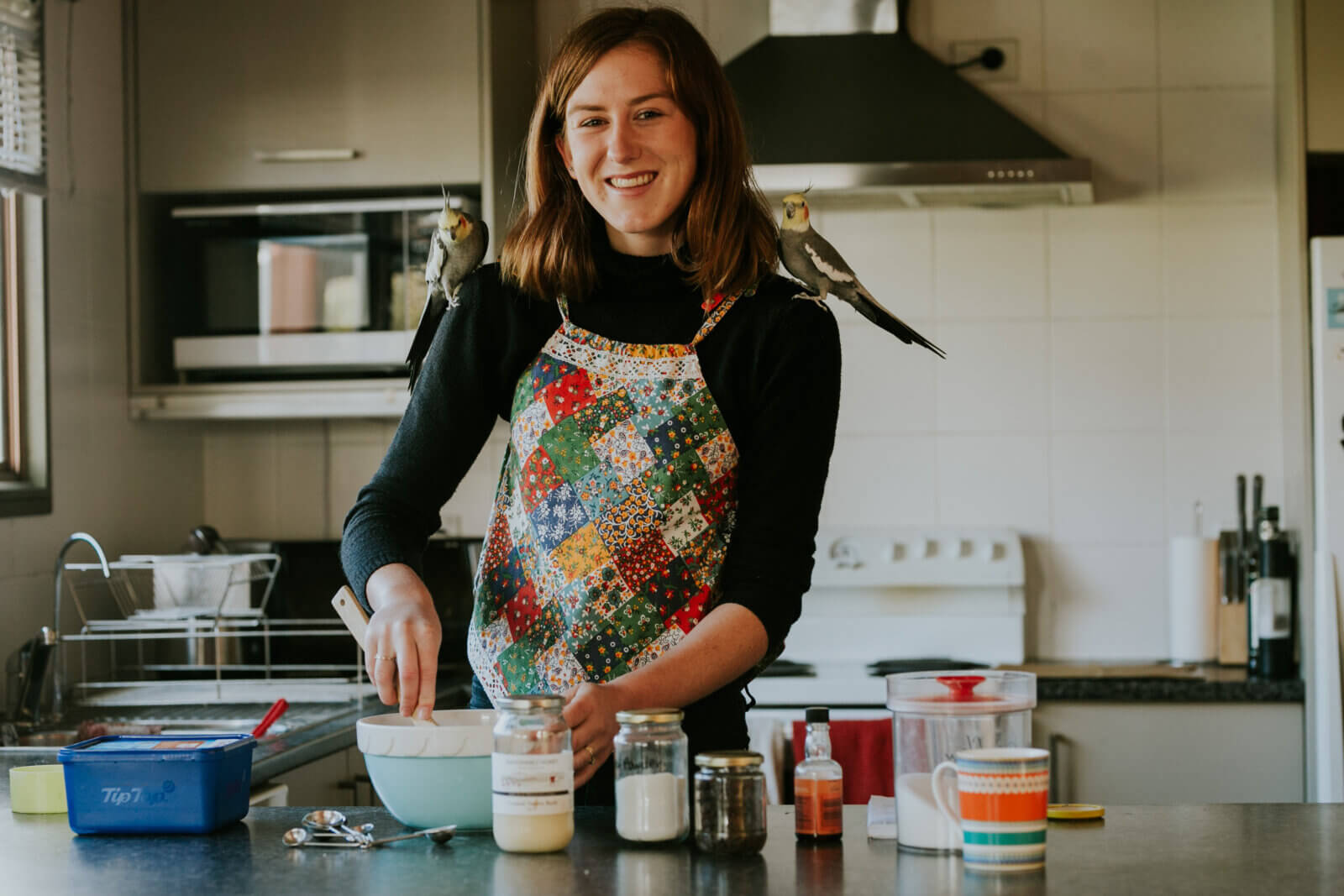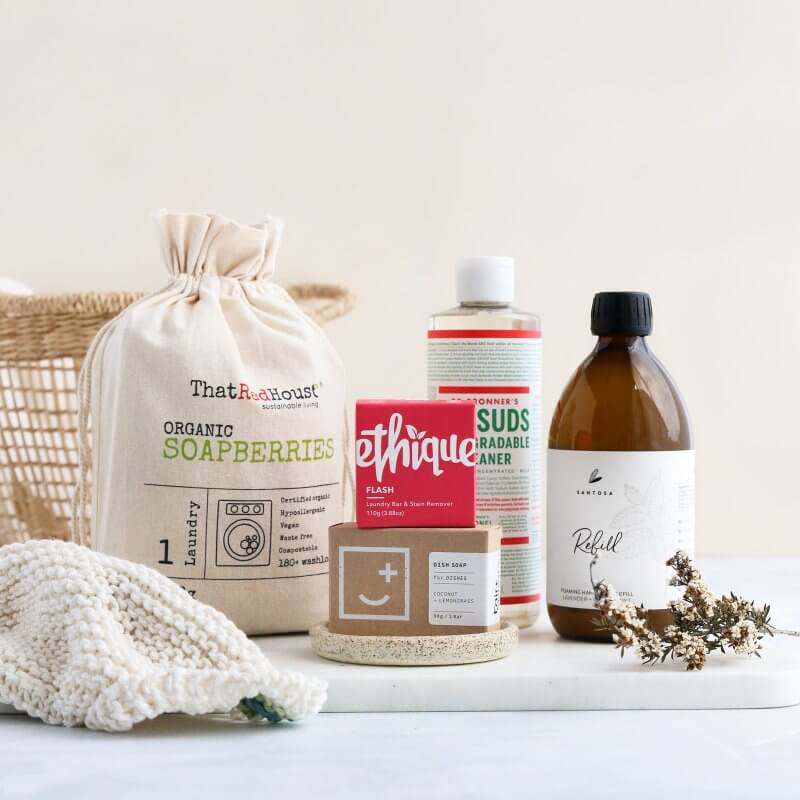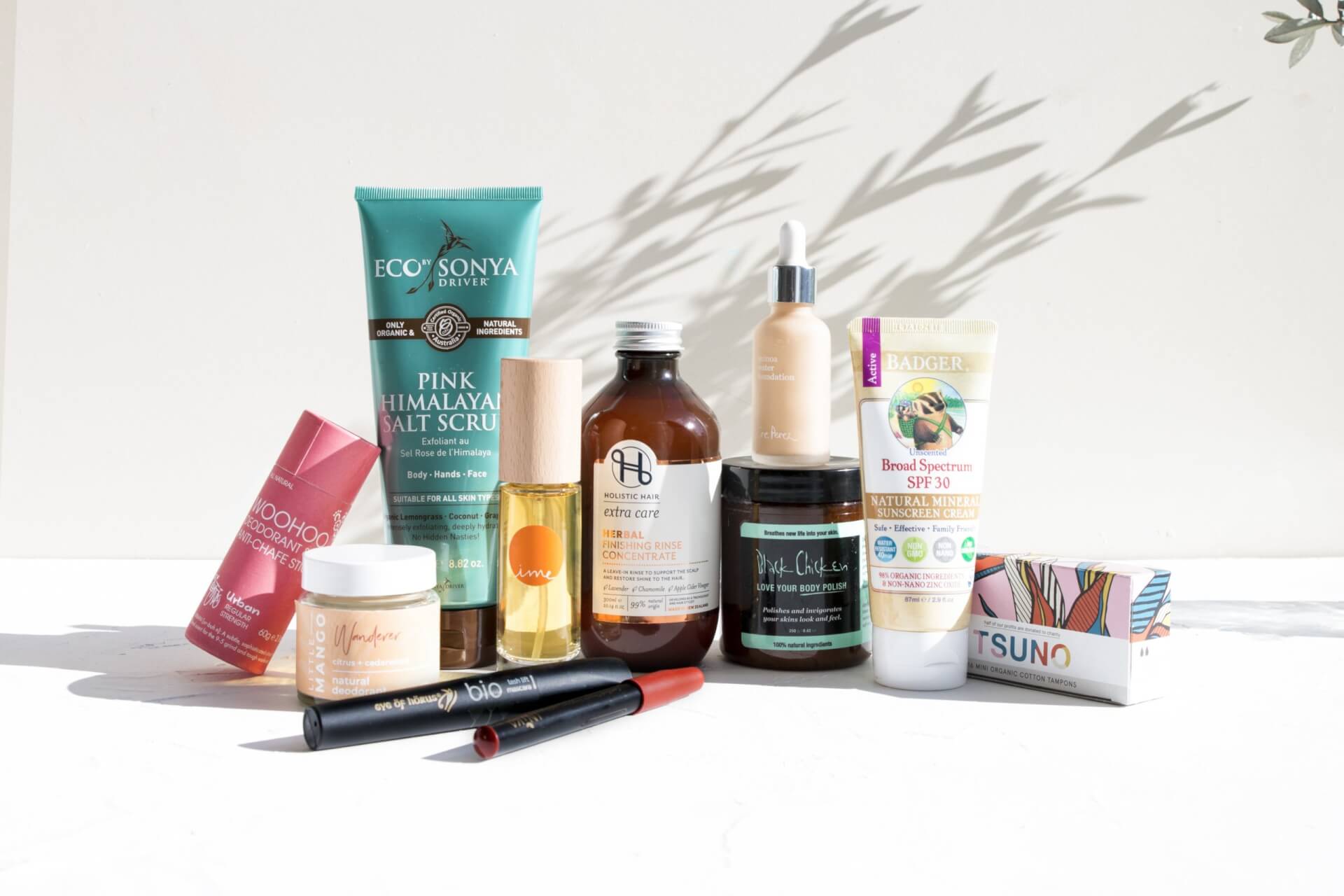Home & Living, Lifestyle, Sustainability, Waste free, Words from Ethically Kate
3 ways to begin cooking up a sustainable kitchen from Ethically Kate
I’ve just spent the last two days in my kitchen. I’ve made food, removed labels from jars to reuse them, and prepared meals for the week ahead. The more time I spend here, the more I’ve realised just how much waste comes from this particular room of the house.
You don’t have to be a waste auditor to know that the majority of a person’s waste is produced in the kitchen. Food scraps, kitchen tools, and cleaning products are just a few of the main waste streams.
With Plastic Free July upon us, I recommend focusing on one area of your house at a time instead of trying to do it all and failing. Start where most waste happens… in your kitchen! There are hundreds of ways to reduce your food waste and food packaging, but this guide will help you with the kitchen basics.
Here are 3 ways to begin cooking up a sustainable kitchen
Replace your kitchen tools
Before you click ‘checkout’ in your cart, listen carefully. Kitchen products made with sustainability in mind are the ideal start to your sustainable kitchen. Yet, it would be incredibly unsustainable to throw away everything you have in the kitchen if the items aren’t actually broken. I know matching bamboo containers are aesthetically pleasing and oh so Instagramable, but please refrain for now! Sustainable items still involve resources to create, and throwing something away that works perfectly fine isn’t in the best interest of the environment! As tools in your kitchen are used up, replace them with better options.
For example, when your dish brush quits, buy a wooden dish brush and replace the brush head when the head is worn out & pop the old one in your compost. If your kitchen cloths become unhygienic and are ready to be used as rags, purchase compostable dishcloths that are easy to wash and will break down in your home compost bin at the end of their life
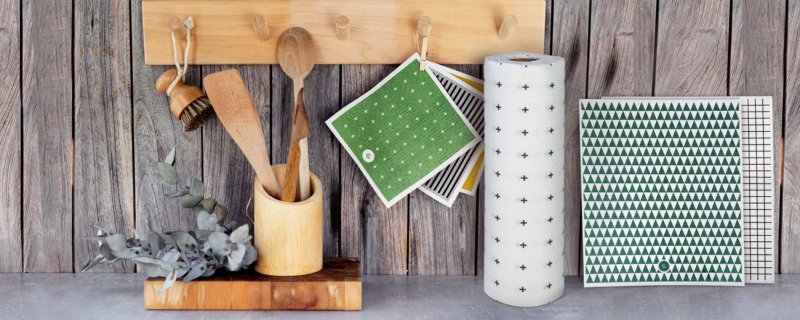
It’s hard to fight the urge of replacing kitchen tools with beautiful sustainable ones, but be conscious of using up what you have first, unless it’s physically harming you (e.g. toxic chemicals in cleaners). Shop Oh Natural’s Waste Free Home and Living Range for more great waste free kitchen ideas!
Opt for safe cleaning products
From your hand soap to your dishwashing liquid, your surface spray to your oven cleaner; what you put on your skin and wash down the drain, is an important decision for your sustainable kitchen. This decision affects your body, and also the health of our waterways and therefore general environment.
Opting for natural and less toxic cleaning products is one of my key sustainable kitchen recommendations, because cleaning products are the ones you use up and purchase most often. You may not need to change your biodegradable scrub pad for several months to a year, but you’ll probably need to refill your cleaning spray before then. With so many benefits for both your body and the environment, cleaning products are an epic sustainable product to focus on purchasing better.
A simple change to a cleaner hand wash like the Santosa Refillable Foaming Hand-Wash or a hand-wash bar and soap dish if that’s more your style) or switching to an Aotearoa New Zealand made ‘everything spray from Santosa’ are easy first steps. Note: they smell so delicious too!
Reuse instead of replace
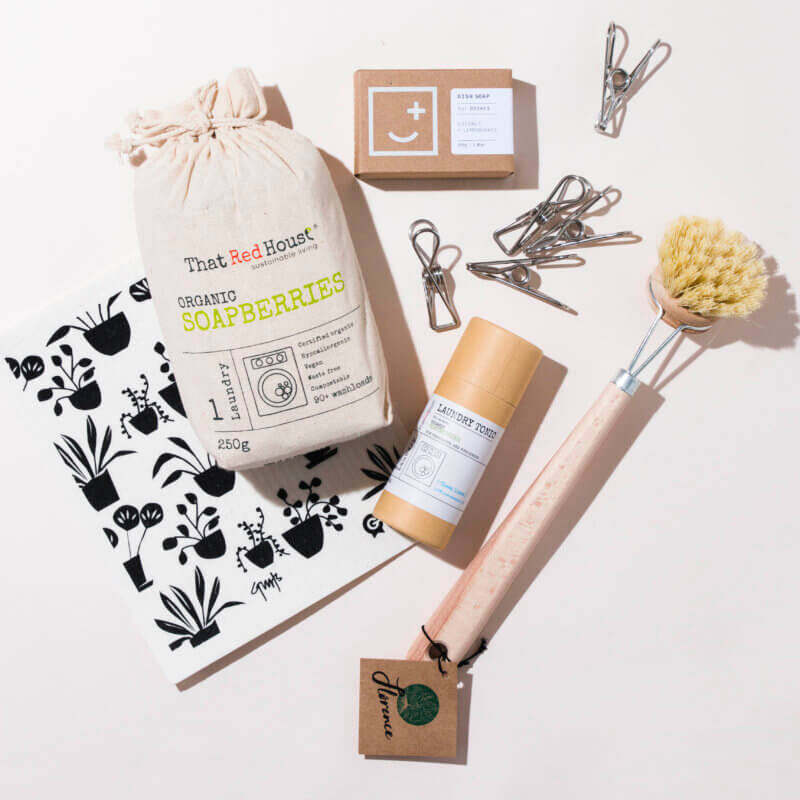 The make-take-throwaway culture is everywhere. Even in our kitchen! We’re quick to point out the environmental impact of single-use coffee cups and cutlery that end up in the bin after a few minutes of use, but what about things in our kitchens like single-use wipes or paper towels?
The make-take-throwaway culture is everywhere. Even in our kitchen! We’re quick to point out the environmental impact of single-use coffee cups and cutlery that end up in the bin after a few minutes of use, but what about things in our kitchens like single-use wipes or paper towels?
Establishing a sustainable kitchen comes from adopting the mindset of reuse and repair, instead of replace. For example, reusing household gloves instead of single-use ones, trying eco wipes (the equivalent of 65 rolls of paper towels!), or optimising an Ever Eco Stainless Steel Bento Snack Box to avoid individually wrapping snacks with plastic wrap. Reusing generally saves money too!
If you’re like me, you spend a lot of time in your kitchen. If you’re not like me, you still have a kitchen and spend some (reluctant!) time there. Whether you’re a maker and baker or not, a kitchen is generally the heart of a home and unfortunately the most waste producing space in the house too.
Choosing sustainable kitchen products that involve less waste and support sustainable business is a brilliant way to embrace Plastic Free July or generally develop your sustainable lifestyle.
P.S. Read our guide to making Plastic Free July decisions stick if you need some extra guidance!
Written by Kate Hall from Ethically Kate
Main Image by Nectar Photography.

